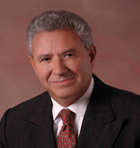- Home
- News
- Features
- Topics
- Labor
- Management
- Opinions/Blogs
- Tools & Resources
EEOC: Calif. Hospital In Million-Dollar Settlement For Discrimination Against 70 Filipino-Americans
21/09/2012 |
Filed under: Corporate Culture,Discrimination,Legal,Management,News |
Posted by: Editor
Targeted discrimination toward Filipino-American is costing a central California hospital nearly a million dollars and three years of federal supervision and anti-discrimination training, according to the EEOC.
Delano Regional Medical Center (DRMC), an acute care hospital in California’s San Joaquin Valley, will pay $975,000 to settle a lawsuit filed by the Equal Employment Opportunity Commission (EEOC) and the Asian Pacific American Legal Center (APALC) on behalf of 70 Filipino-American hospital workers.
The settlement, announced 17 September 2012, resolves the EEOC’s and APALC’s charges that the workers endured ongoing harassment and discrimination due to their national origin and that the discrimination stemmed from top hospital management.
The 156-bed Delano Regional Medical Center employs more than 600 workers, including more than 130 physicians, according to its website. It located in the city of Delano, about 30 miles north of Bakersfield, Calif.
Since at least 2006, the Filipino-American hospital workers, mostly nursing staff, alleged that they were the targets of harassing comments.
The Filipino-American workers were also subjected to undue scrutiny and discipline particularly if they spoke with a Filipino accent or in Filipino languages like Tagalog or Ilocano.
Supervisors, staff and even volunteers were allegedly encouraged to act as vigilantes, constantly berating and reprimanding Filipino-American employees for nearly six years.
Hospital staff constantly made fun of their accents, ordering them to speak English even when they were already speaking in English, according to the EEOC.
Some Filipino-American workers endured humiliating threats of arrest if they did not speak English. Some were told to go back to the Philippines.
In one particularly offensive incident, an employee sprayed air freshener on a worker’s lunch due to the offender’s self-professed hatred of Filipino food.
The hostile work environment stemmed from a 2006 meeting.
During the meeting the chief executive officer and hospital management called only Filipino-American staff to the meeting.
In the meeting management threatened the Filipino-American staff about the consequences of not complying with the hospital’s English-only language policy. Hospital managers also threatened to install surveillance equipment to monitor their conversations.
No other ethnic groups were targeted in the meeting.
The policy allegedly required employees to speak in English except when speaking to a patient with other language needs or during break time.
Rather than enforcing the policy with all staff, the EEOC asserted that solely Filipino-American staff members, who made up more than 15% of the hospital’s workforce, were disciplined for alleged infractions. They were constantly monitored for enforcement of the policy.
Non-Filipino staff who routinely spoke languages other than English – such as Spanish – on the job were not disciplined or harassed as a result.
Ultimately, about 115 Filipino-American workers signed a petition reporting the discrimination and harassment to top-level hospital management.

However, hospital management continuously failed to investigate the allegations or take any action to stop it for an extensive period of time thereafter.
According to The Los Angeles Times –
Hospital administrators denied wrongdoing, according to a statement released Monday, saying it “made no financial sense for the hospital to continue this lawsuit and further waste valuable assets which could be better spent on the community’s healthcare needs.”
The nurses’ lawsuit was “an attack” on Delano’s policy requiring the use of either English or the patient’s preferred language while providing patient care.
The hospital “has the same policy with the same goals — protection of patients,” said John Szewczyk, Delano’s attorney.
Discrimination Against Filipino-Americans – EEOC Takes Action
The EEOC filed suit against the hospital in August 2010 (EEOC v. Central California Foundation for Health d/b/a Delano Regional Medical Center, Case No. 10-CV-01492-LJO-JLT).
In January 2011, APALC partnered with the EEOC and filed forth its own lawsuit on behalf of several more alleged victims.
The settlement includes a three-year consent decree requiring DRMC to pay $975,000 in monetary relief. The hospital also must develop strong protocols for handling harassment and discrimination and to adopt a language policy that complies with federal law.
The hospital further agreed to hire an EEO monitor to assist Delano to comply with the terms of the agreement.
The monitor will also help revise policies and procedures and conduct anti-harassment and anti-discrimination training for all staff. Supervisors will have additional training.
The hospital will submit reports to the EEOC and will post a notice on the matter. The EEOC will monitor compliance with the consent decree.
“Employees should never be targeted because of their national origin or language,” said David Lopez, EEOC General Counsel. “The EEOC stands ready to assist employees nationwide who believe they have suffered workplace discrimination, and to ensure that our work force reflects the rich diversity of our nation.”
The EEOC is working with the White House and other agencies to improve the quality of life and opportunities for Asian-Americans and Pacific Islanders by increasing access to and participation in federal programs where they remain underserved.
“The EEOC continues to see the improper implementation of language policies that contradict the civil rights of employees in the health care industry,” said Anna Park, regional attorney for the EEOC’s Los Angeles District Office.
“All employers should take DRMC’s lead and ensure that their language policies do not violate federal law,” Park said. “We commend the Filipino-American workers who came forward, and we encourage other Asian-Americans and Pacific Islanders to do the same if they experience discrimination or retaliation in the workplace.”
“We Filipino nurses loved our jobs and always gave outstanding care to our patients, and it was humiliating to be harassed and singled out,” said lawsuit participant Wilma Lamug, a licensed vocational nurse who worked at DRMC for more than 10 years.
“We wanted to be free from discrimination and EEOC and APALC helped us fight for justice. We hope that this case will serve as a model to others. Workers deserve respect as human beings and deserve to be treated fairly.”
“DRMC enforced an overly restrictive English only policy against its Filipino American employees and created a workplace environment that was hostile towards them,” said Laboni Hoq, litigation director at APALC. “This landmark settlement should send a strong message to employers that it is illegal to target workers based on their national origin and will hopefully encourage more Asian American and immigrant workers to speak out when their rights are violated.
“We applaud the EEOC for initiating this case, and for standing with us in fighting for a resolution that not only vindicated our clients’ rights but also lays the groundwork for more just language policies in other workplaces.”
The EEOC enforces federal laws prohibiting employment discrimination. Further information about the EEOC is available on its web site at www.eeoc.gov.
- Celebrating the Resilience of Low-Income Women
- CEOs Get to Retire Comfortably. Workers Like Me Deserve the Same.
- Jobs Increased 339,000 In May, Unemployment Up 0.3% To 3.7%
- The decline of job creation at new establishments
- Contractor faces 2 serious citations after US Department of Labor finds safety failures led to welder’s death at Bonner Bridge demolition project
List your business in the premium web directory for free This website is listed under Human Resources Directory
- Celebrating the Resilience of Low-Income Women

- CEOs Get to Retire Comfortably. Workers Like Me Deserve the Same.

- Jobs Increased 339,000 In May, Unemployment Up 0.3% To 3.7%

- The decline of job creation at new establishments

- Contractor faces 2 serious citations after US Department of Labor finds safety failures led to welder’s death at Bonner Bridge demolition project

- Investigation into worker’s severe arm injury finds Cusseta auto parts manufacturer, supplier willfully ignored safety precautions

- ‘It’s a sweat factory’: Instacart workers ready to strike for pay and conditions

- Ships backed up outside US ports pumping out pollutants as they idle

- Privacy fears as Moscow metro rolls out facial recognition pay system
- ‘We are not machines’: Hollywood workers poised to strike for better conditions
- Boeing pilot indicted for allegedly deceiving US regulators over 737 Max
- Ipswich apprentice butcher encourages others to consider industry

- Ipswich apprentice butcher encourages others to consider industry

- Over 10,000 John Deere workers strike over ‘years’ of poor treatment
- Corporations are pledging to be ‘water positive’. What does that mean?
- US Department of Labor investigation of crane collapse, double fatality on Interstate 10 finds Lufkin company failed to assemble crane properly

- For the 6th time in 7 years, federal inspectors find Illinois contractor putting construction workers at risk of industry’s deadliest hazard

- US Department of Labor proposes $83K in fines to healthcare facility for failing to protect workers from coronavirus hazards

- Facebook says it will do more to prevent online hate, harassment
- As U.S. prepares to reopen border, some urge Canada to relax testing requirement
- Biden orders companies to ease supply chain bottlenecks or he’ll ‘call them out’
- What is the ‘new model’ the EU is proposing for Northern Ireland?
- Apple to make 10 million fewer iPhones due to microchip shortage
- US Department of Labor, Mexican Consulate in Boston enter alliance to promote workplace safety, health among New England’s workers

- US Department of Labor sues Austin luxury car dealer that retaliated against employee who raised concerns of coronavirus hazards

- Vaccine hesitant New Yorkers consider leaving the city as mandates take effect
- Carbon emissions ‘will drop just 40% by 2050 with countries’ current pledges’
- House passes bill to raise US debt ceiling through early December
- ‘The stakes couldn’t be higher’: GE urged to invest in green US jobs
- Zellers returns — kind of — but the lowest price isn't quite the law
- Cement makers across world pledge large cut in emissions by 2030
- India faces electricity crisis as coal supplies run critically low
- California justice department to investigate enormous oil spill

